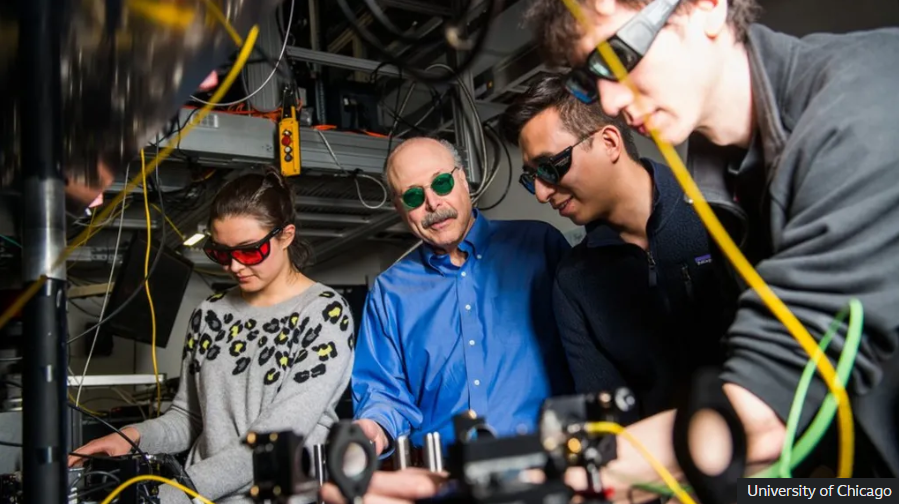How quantum physics could 'revolutionise everything'

Growing up on an Australian farm, Liam Hall began his career as a mechanic, spending his days "getting greasy, scraped knuckles." However, his professional journey has taken a highly technical turn, leading him to his current role as the head of quantum biotechnology at CSIRO, Australia's national science agency. Reflecting on his unconventional path, Dr. Hall shares, "I always wanted to be a diesel mechanic. That led me to study engineering at university, where I discovered physics, and later, quantum physics. It’s been a rollercoaster ride."
Dr. Hall’s team focuses on developing diagnostic technologies using micro-sensors made from diamond slivers, each about 50 nanometers thick—1,000 times finer than a human hair. These sensors aim to revolutionize iron level testing in patients by measuring the magnetic fields generated by iron inside the ferritin protein, an improvement over traditional methods that monitor ferritin levels alone. While detecting such tiny magnetic fields is impossible with conventional tools, Dr. Hall's nano-scale quantum sensors can accomplish this, potentially paving the way for early disease detection, including identifying hormonal or protein markers for cancer. "Quantum systems offer unparalleled sensitivity and cost-effective chemical identification," he explains.
Dr. Hall’s work is part of a global effort to advance quantum technology. Countries like the UK, China, and the US are investing in this field, which CSIRO’s chief scientist, Prof. Bronwyn Fox, describes as "one of Australia’s most promising growth opportunities." Emerging in the 20th century, quantum mechanics studies subatomic particles and holds the potential to solve complex problems, spanning applications from decarbonization and environmental science to cybersecurity and medicine. These technologies could enable breakthroughs like carbon-eating molecules, quantum-powered vehicles, and optimized logistics systems.
Quantum computing stands out for its ability to process and store data using qubits, which can exist in multiple states simultaneously (superposition) and maintain connections across vast distances (entanglement). "This allows quantum computers to perform calculations impossible for traditional systems," explains Prof. Andrew Dzurak from the University of New South Wales. For example, quantum computers could rapidly develop treatments for new diseases, reducing the time to design vaccines from months to days.
Quantum research also aims to create secure communication systems. Quantum internet technology, utilizing particles of light (photons), could transmit data through optical fibers, making it nearly immune to hacking. In the US, the University of Chicago has built a 200km quantum network and leads the Chicago Quantum Exchange (CQE), a global collaboration involving Australia, India, Japan, and other nations. The CQE expects quantum technologies to generate $60 billion in economic value and create 30,000 jobs by 2035.
David Awschalom, a leading figure at CQE, acknowledges challenges in advancing quantum computing, such as maintaining quantum coherence, correcting errors, and scaling systems to increase their computational capacity. Despite these hurdles, researchers are optimistic. Dr. Muhammed Usman from CSIRO highlights quantum artificial intelligence as a key research area. He believes integrating quantum computing with AI could lead to highly reliable systems, with potential applications in fields like self-driving vehicles and autonomous drones.
Dr. Usman envisions a future where large-scale quantum computers run algorithms that solve previously intractable problems. "That would be a dream come true," he says, emphasizing the transformative potential of these technologies for the world.
Source : https://www.bbc.com/news/business-68880569